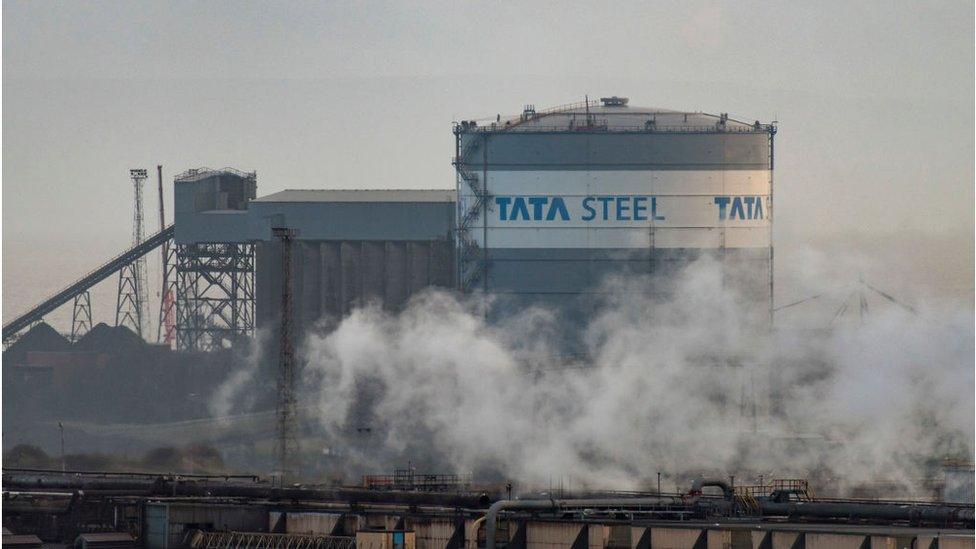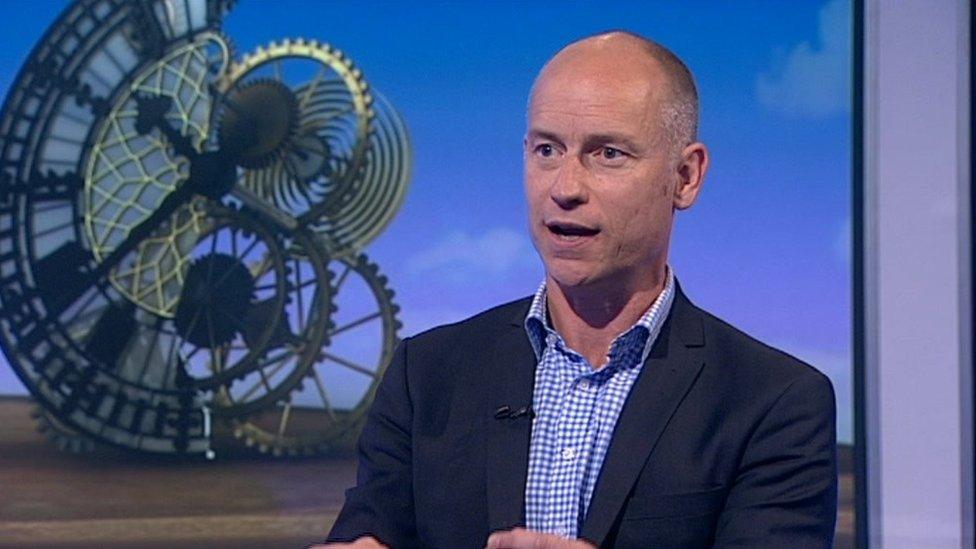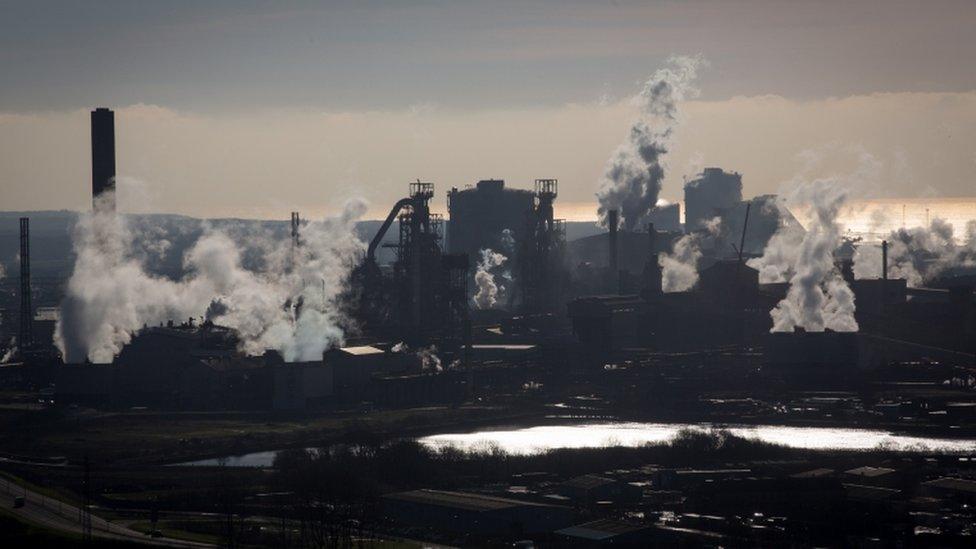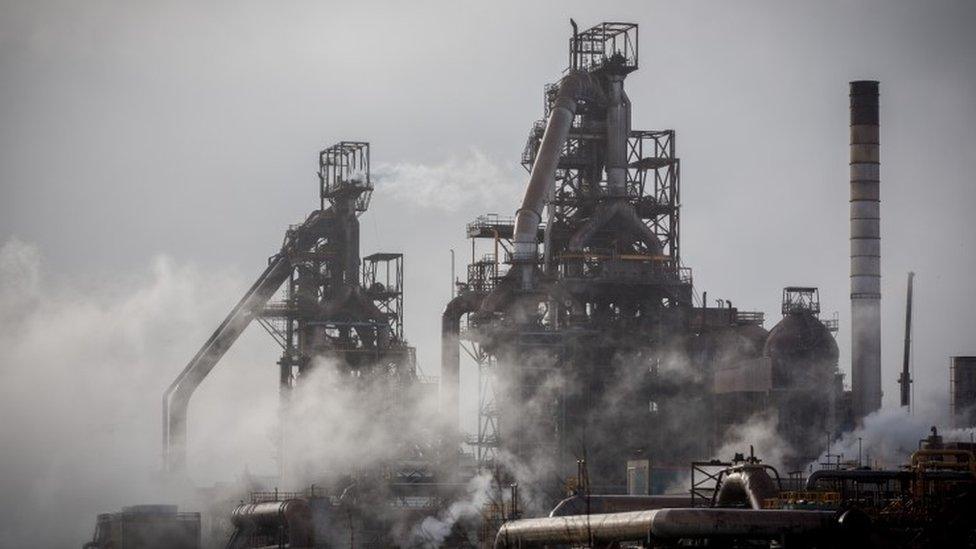Coronavirus: Tata Steel in government talks amid bailout reports
- Published

The Tata Steel plant in Port Talbot
Britain's largest steelmaker, Tata Steel, has confirmed it is seeking government support amid reports it is close to securing a bailout worth hundreds of millions of pounds.
According to the Financial Times,, external a rescue deal could be agreed within days, helping save about 8,000 UK jobs.
The steel industry was suffering before the pandemic but demand has now dived.
"We have been, and continue to, seek government support in the UK... and all geographies we operate in," Tata said.
Tata Steel said "it would not be appropriate to comment on ongoing discussions with governments."
According to the FT, the bailout would take the form of a loan that could be converted into equity at a later date, should Tata be unable to repay.
That would mean the government potentially taking a stake in British steel for the first time in 30 years.
The government said it was "in regular discussions with companies across a range of sectors".
"We do not comment on the commercial or financial affairs of individual companies," it added.
The loan would support Tata Steel's UK operations, which include its main Port Talbot plant in Wales, but also sites elsewhere in Wales, Hartlepool and Corby.
Tata has been seeking a state loan worth £500m, according to Stephen Kinnock, the Labour MP for Aberavon, where Port Talbot is based.
The FT says Tata, which is Indian owned, would be expected to sign up to various commitments to its workers and cutting carbon emissions as part of any deal.

MP Stephen Kinnock has said Tata Steel needs a loan of £500m
The rescue loan would be the first under the government's Project Birch scheme, which is designed to save large firms that are unable to get the support they need through existing schemes.
Aviation and aerospace are reported to be among other sectors that may require "bespoke" bailouts.
Like other UK steel operators, Tata Steel has been hit hard by rising production costs and international competition in recent years and has struggled to turn a profit.
It suffered a £371m pre-tax loss in 2019 amid continuing uncertainty over Brexit.
Since the pandemic hit, however, demand for steel has dropped massively as industries such as car manufacturing have ground to a halt.
'Cost of doing nothing'
Mr Kinnock has urged the government to step in to support steel firms, warning many could fold, costing thousands of jobs.
"Imagine the cost of losing those jobs… So we are saying to the government - give the temporary loan," he told the BBC on Sunday.
"It is a loan that will be paid back in order to avoid the massive cost of doing nothing."
- Published21 June 2020

- Published25 April 2020
